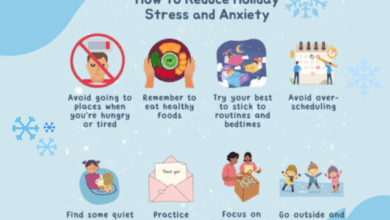Understand chronic fatigue and its hidden causes

Ever feel utterly drained, no matter how much you rest? Like you’re wading through mud just to get through the day? You’re not alone. Chronic fatigue isn’t just being tired; it’s a persistent, debilitating exhaustion that doesn’t improve with sleep or rest. It can impact every aspect of your life – work, relationships, even simple daily tasks. For years, many dismissed it as simply “being stressed,” but we’re now understanding that chronic fatigue is often a complex issue with a multitude of potential underlying causes. And often, at the heart of it all, are the far-reaching sleep deprivation effects. This article will dive deep into chronic fatigue, exploring its hidden causes, the crucial role sleep plays, and what you can do to start reclaiming your energy. We’ll look beyond the surface and uncover what might really be going on when you feel constantly exhausted, including the impact of poor sleep quality and insufficient rest.
Key Takeaways
- Chronic fatigue is more than just tiredness; it’s a persistent exhaustion that interferes with daily life.
- Sleep deprivation effects are a major contributor to chronic fatigue, impacting physical and mental health.
- Hidden causes can include nutritional deficiencies, hormonal imbalances, gut health issues, and underlying medical conditions.
- Stress management techniques, dietary changes, and improved sleep hygiene are crucial for recovery.
- Identifying and addressing the root cause, rather than just treating the symptoms, is key to long-term relief.
- Conditions like fibromyalgia and chronic fatigue syndrome (CFS) are often linked to sleep disturbances.
- Seeking professional medical advice is essential for accurate diagnosis and personalized treatment.
What Exactly Is Chronic Fatigue?
Let’s start by defining what we mean by chronic fatigue. It’s not the same as feeling tired after a long day or a late night. Chronic fatigue is a profound and persistent exhaustion that lasts for six months or longer. It’s often accompanied by other symptoms like muscle pain, headaches, difficulty concentrating (often described as “brain fog”), and a general feeling of being unwell. It’s important to distinguish it from conditions like insomnia, which primarily affects sleep, although the two can certainly overlap. Chronic fatigue can significantly reduce your ability to function at work, school, or home. It’s a real medical issue, and it’s not something to simply “push through.”
The Vicious Cycle of Sleep and Fatigue
One of the most significant factors contributing to chronic fatigue is, unsurprisingly, sleep deprivation effects. But it’s not always about how much sleep you’re getting; it’s also about the quality of that sleep. If you’re tossing and turning, waking up frequently, or not reaching deep, restorative sleep, you’re not getting the benefits you need. This lack of quality sleep then exacerbates fatigue, creating a vicious cycle. Poor sleep impacts hormone regulation, immune function, and cognitive abilities – all of which can contribute to feeling constantly drained. Many people experiencing long-term fatigue also suffer from sleep disorders like sleep apnea, which further disrupts sleep and worsens symptoms.
Hidden Cause #1: Nutritional Deficiencies
Believe it or not, what you eat (or don’t eat) can play a huge role in your energy levels. Deficiencies in key nutrients like iron, vitamin D, vitamin B12, and magnesium are commonly linked to fatigue. Iron deficiency anemia, for example, reduces the amount of oxygen your blood can carry, leading to tiredness and weakness. Vitamin D is crucial for energy production and immune function. B vitamins are essential for converting food into energy. And magnesium plays a role in muscle function and nerve transmission. A balanced diet rich in whole foods is the best way to ensure you’re getting the nutrients you need, but sometimes supplementation may be necessary – always consult with a healthcare professional before starting any new supplements.
Hidden Cause #2: Hormonal Imbalances
Hormones are chemical messengers that regulate a wide range of bodily functions, including energy levels. Imbalances in hormones like thyroid hormones, cortisol, and sex hormones (estrogen and testosterone) can contribute to chronic fatigue. Hypothyroidism (underactive thyroid) is a common cause of fatigue, as it slows down metabolism and reduces energy production. Chronic stress can lead to elevated cortisol levels, which can initially provide a boost of energy but eventually lead to adrenal fatigue and exhaustion. Hormonal fluctuations during menopause can also cause fatigue in women.
Hidden Cause #3: Gut Health and the Microbiome
The gut microbiome – the trillions of bacteria that live in your digestive system – is increasingly recognized as playing a vital role in overall health, including energy levels. An imbalance in gut bacteria (dysbiosis) can lead to inflammation, nutrient malabsorption, and impaired immune function, all of which can contribute to fatigue. Conditions like irritable bowel syndrome (IBS) and leaky gut syndrome are often associated with chronic fatigue. Supporting gut health through a diet rich in fiber, probiotics, and prebiotics can help improve energy levels.
Hidden Cause #4: Underlying Medical Conditions
Chronic fatigue can sometimes be a symptom of an underlying medical condition. Conditions like fibromyalgia, chronic fatigue syndrome (CFS) – also known as myalgic encephalomyelitis (ME/CFS) – autoimmune diseases (like lupus and rheumatoid arthritis), and heart disease can all cause persistent fatigue. It’s crucial to rule out any underlying medical conditions through a thorough medical evaluation. The diagnostic criteria for ME/CFS often include post-exertional malaise, a worsening of symptoms after physical or mental exertion.
The Impact of Chronic Stress
While not a “hidden” cause, the impact of chronic stress cannot be overstated. Prolonged stress depletes your body’s resources, disrupts hormone balance, and weakens your immune system. It also contributes to sleep deprivation effects by making it harder to fall asleep and stay asleep. Finding healthy ways to manage stress – such as exercise, meditation, yoga, or spending time in nature – is essential for combating chronic fatigue. Mindfulness practices can be particularly helpful in reducing stress and improving sleep quality.
Improving Your Sleep Hygiene
Given the strong link between sleep deprivation effects and chronic fatigue, improving your sleep hygiene is paramount. This means creating a relaxing bedtime routine, making sure your bedroom is dark, quiet, and cool, and avoiding caffeine and alcohol before bed. Establishing a regular sleep schedule – going to bed and waking up around the same time each day, even on weekends – can also help regulate your body’s natural sleep-wake cycle. Consider a relaxing bath or reading a book before bed to wind down.
Dietary Changes for Increased Energy
What you eat directly impacts your energy levels. Focus on a whole-food diet rich in fruits, vegetables, lean protein, and healthy fats. Avoid processed foods, sugary drinks, and excessive caffeine. Eating regular meals and snacks throughout the day can help maintain stable blood sugar levels and prevent energy crashes. Consider incorporating foods known for their energy-boosting properties, such as spinach, salmon, and nuts.
The Role of Exercise (and When to Avoid It)
While it may seem counterintuitive, regular exercise can actually increase energy levels in the long run. However, it’s important to start slowly and gradually increase intensity. Overexertion can worsen symptoms, especially in individuals with ME/CFS. Listen to your body and rest when you need to. Gentle exercises like walking, yoga, and swimming are often well-tolerated.
When to Seek Professional Help
If you’re experiencing persistent fatigue that interferes with your daily life, it’s important to seek professional medical help. A doctor can rule out any underlying medical conditions, diagnose chronic fatigue syndrome or fibromyalgia if appropriate, and recommend a personalized treatment plan. Don’t hesitate to advocate for yourself and seek a second opinion if you’re not satisfied with the care you’re receiving.
Supplements to Consider (With Caution)
While a healthy diet should be your primary focus, certain supplements may be helpful in addressing nutritional deficiencies and supporting energy levels. Iron, vitamin D, vitamin B12, magnesium, and CoQ10 are all commonly considered. However, it’s crucial to talk to your doctor before starting any new supplements, as they can interact with medications or have side effects.
Managing Brain Fog and Cognitive Dysfunction
Chronic fatigue often comes with “brain fog” – difficulty concentrating, remembering things, and thinking clearly. Strategies for managing brain fog include getting enough sleep, reducing stress, eating a healthy diet, and engaging in mentally stimulating activities. Mindfulness exercises and cognitive behavioral therapy (CBT) can also be helpful.
The Importance of Pacing Yourself
Pacing is a strategy often recommended for individuals with chronic fatigue, particularly those with ME/CFS. It involves balancing activity and rest to avoid overexertion and post-exertional malaise. Learn to recognize your limits and plan your activities accordingly. Break down tasks into smaller, more manageable steps.
Finding Support and Community
Living with chronic fatigue can be isolating and challenging. Connecting with others who understand what you’re going through can provide valuable support and encouragement. Join a support group, online forum, or connect with friends and family who are understanding and supportive.
FAQs
Q: Is chronic fatigue the same as depression?
A: No, while both can cause fatigue, they are distinct conditions. Depression is a mood disorder, while chronic fatigue is a physical condition characterized by persistent exhaustion. However, the two can co-occur, and sleep deprivation effects can contribute to both.
Q: Can stress really cause chronic fatigue?
A: Yes, chronic stress is a major contributor to chronic fatigue. Prolonged stress depletes your body’s resources and disrupts hormone balance, leading to exhaustion. Managing stress is crucial for recovery.
Q: What is the best diet for chronic fatigue?
A: A whole-food diet rich in fruits, vegetables, lean protein, and healthy fats is ideal. Avoid processed foods, sugary drinks, and excessive caffeine. Addressing potential food sensitivities can also be helpful.
Q: How long does it take to recover from chronic fatigue?
A: Recovery time varies greatly depending on the underlying cause and severity of the condition. It can take months or even years to see significant improvement. Patience and consistency are key.
Q: Are there any medications for chronic fatigue?
A: There is no single medication that cures chronic fatigue. However, medications may be used to manage specific symptoms, such as pain, sleep disturbances, or depression.
We hope this article has shed some light on the complex world of chronic fatigue and the significant role sleep deprivation effects play. Remember, you’re not alone, and there are steps you can take to reclaim your energy and improve your quality of life. Don’t hesitate to reach out to a healthcare professional for personalized guidance and support. Take things one day at a time, be kind to yourself, and remember that even small changes can make a big difference. We’d love to hear about your experiences – please share your thoughts and questions in the comments below!
Hi, I’m Sophia! Welcome to my blog Try Stress Management (trystressmanagement.com), where I share simple, down-to-earth ways to handle stress and bring more calm into everyday life. Think of me as your friendly guide, offering practical tips, reflections, and little reminders that we’re all figuring this out together.
When I’m not blogging, you’ll usually find me with a good book, sipping tea, or exploring new walking trails. I believe small changes can make a big difference—and that a calmer, happier life is possible for everyone.

